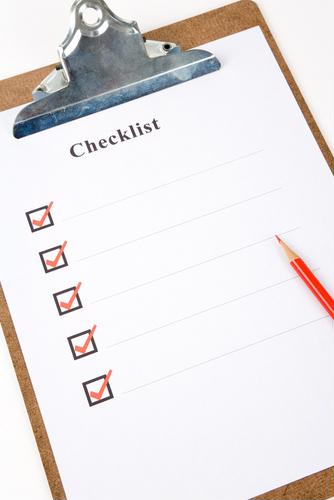
Refinancing a mortgage is a common homeowner strategy. Doing so might net you a lower interest rate or other benefits, like a new mortgage term or cash from home equity. However, refinancing your mortgage essentially means going through the home loan approval process all over again, and you’ll need to be prepared for process before you initiate a refinance.
Since you’re refinancing, you’ve most likely been through the mortgage process before. But here’s a refresher on what documents you need and other considerations to be aware of in a handy mortgage refinance checklist.
Before you start
Take time to ask yourself these questions before refinancing, as it does represent a big financial step.
- Do you have clear goals in refinancing?
- Is it a lower monthly payment? To shorten or lengthen the term? To go from convention mortgage to government-supported option, or vice versa?
- How would you use money from a cash-out refinance?
- For home improvements? Paying down high-interest debts? College or retirement savings?
- Can a refinance lower or eliminate mortgage insurance?
It would be helpful to use a refinance calculator before beginning the process officially. Determining the right loan amount, your current assets and your debt-to-income ratio are important to taking advantage of the benefits refinancing can offer.
1. Collect personal identification documents
Next is the standard practice of gathering together various personal documents. Each lender will have different requirements for documentation you must produce, but at a minimum you should be prepared to provide your:
- Full legal name and date of birth.
- Government-issued photo ID.
- Social Security number.
- Current phone number, email address and residential mailing address.
- Marital status, which may include divorce documents.
2. Organize personal finance documents
Your personal finances have a big role to play in applications for a refinance. Lenders will want extensive documentation for these factors, and will likely request that you submit:
- Proof of employment including at least two recent paystubs and employer contact information to verify primary or secondary income.
- A statement for all current assets including checking and savings accounts, retirement accounts, investments (stocks, bonds, mutual funds, etc.), rental properties and other assets.
- Lenders may also ask for more detailed information about debts, including business debts, such as the structure.
- A list of current expenses, including monthly mortgage payment, debt payments, education payments, child support payments, utilities and other applicable ongoing cost.
- Updated credit score and report.
- Federal tax returns going back two to five years and W-2/1040 forms.
3. Get details on your current mortgage and home
The specifics of your current home loan and residence are of particular importance to the refinancing process. You will need to come prepared with the:
- Address of your home and copies of the the title insurance and recorded deed.
- Estimated of annual property taxes and homeowners association dues.
- Proof of homeowners insurance.
- Current mortgage monthly payment, interest rate, term, and outstanding principal and interest.
- Information on any debts tied to the house, including home equity loans or home equity lines of credit.
4. Think of anything else you might need
You might need to prepare other documents depending on the value of your refinance, your personal or credit history and existing relationship with the lender. Commonly, these might be:
- Bankruptcy discharge papers.
- Letters explaining any credit issues or gaps in employment.
- Information on your business cash flow or revenues if self-employed.
- Statements of personal property including valuable collections, life insurance and vehicles.
5. Don’t forget closing costs
Closing costs are an unwelcome surprise many run into near the end of the refinancing process. Because a new mortgage is being originated for the refinance, closing costs are a necessary part of the equation. Hopefully you factored these variables into refinancing affordability before, but if not, here’s a reminder on expenses tied to refinancing:
- Closing costs.
- Application, inspection, appraisal and survey fees.
- Attorney representation or review.
- Title search.
- Loan origination fees.
- Points.
- Prepayment penalties.
Here’s a handy guide from the Federal Reserve that you can reference on anything to do with refinancing. It contains an especially helpful passage that breaks down the costs of refinancing. On average, you should expect to pay between 3 and 6% of your outstanding principal in refinancing fees.
Have you ticked off all the needed boxes and are ready to refinance? Reach out to The Federal Savings Bank today to start the process.
This information is intended for educational purposes only. Products and interest rates subject to change without notice. Loan products are subject to credit approval and include terms and conditions, fees and other costs. Terms and conditions may apply. Property insurance is required on all loans secured by property. VA loan products are subject to VA eligibility requirements. Adjustable Rate Mortgage (ARM) interest rates and monthly payment are subject to adjustment. Upon submission of a full application, a mortgage banker will review and provide you with the terms, conditions, disclosures, and additional details on the interest rates that apply to your individual situation.


